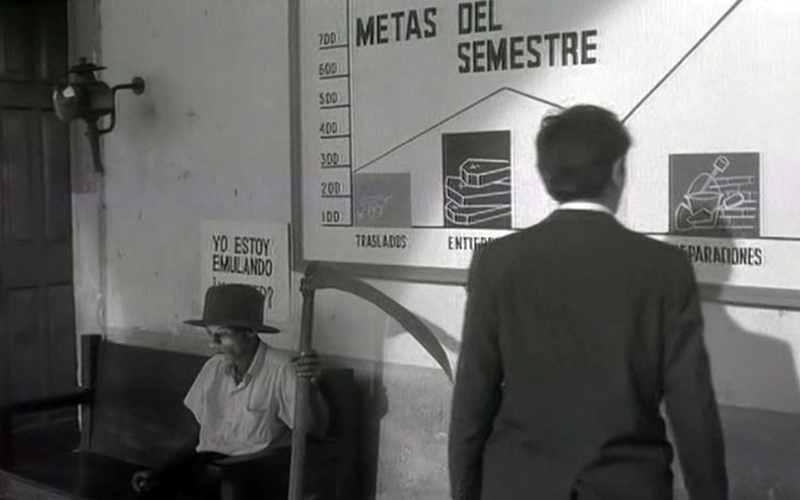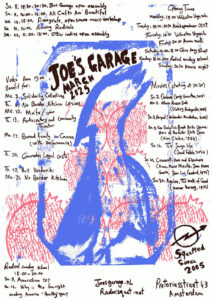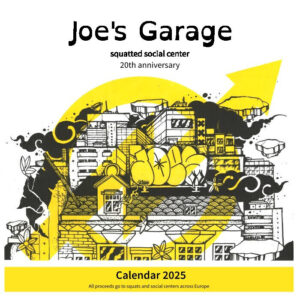 Sunday 9 June 2024, Can Dialectics Break Bricks Cinema: Death of a Bureaucrat (La muerte de un burócrata) * by Tomás Gutiérrez Alea * 1966 * 85 minutes * In Cuban Spanish with English subtitles * free screening * doors open at 8.30 * intro and film start at 9:00.
Sunday 9 June 2024, Can Dialectics Break Bricks Cinema: Death of a Bureaucrat (La muerte de un burócrata) * by Tomás Gutiérrez Alea * 1966 * 85 minutes * In Cuban Spanish with English subtitles * free screening * doors open at 8.30 * intro and film start at 9:00.
A key black comedy in Cuban film history, directed by one of its maverick filmmakers Tomás Gutiérrez Alea (Memories of Underdevelopment, Strawberry and Chocolate) who chose to stay in post-revolutionary Cuba and supported its socialist cause but never thought twice about criticizing the regime’s shortcomings.
In this film director Alea lampoons the stuffy and insane world of bureaucratic red tape. The journey begins when a widow realizes there was an important document in the pocket of her deceased husband who has already been buried, and needs an official permit to have the body exhumed. This starts an absurd chain of events with a razor-sharp Buñuelian sense of black humor.
Film night at Joe’s Garage, cozy cinema! Free entrance. You want to screen a movie, let us know: joe [at] lists [dot] squat [dot] net



 ANYTHING GOES! Music,…
ANYTHING GOES! Music,…
